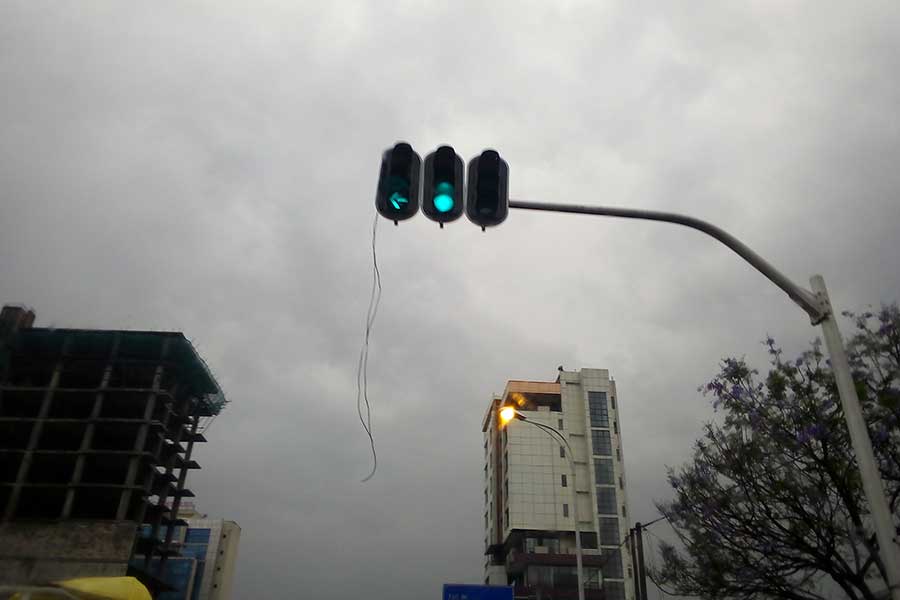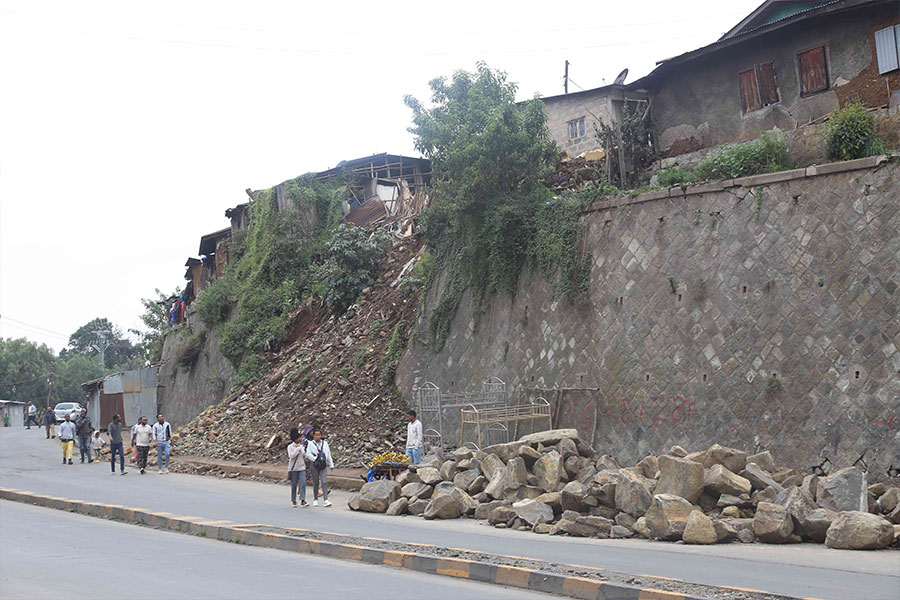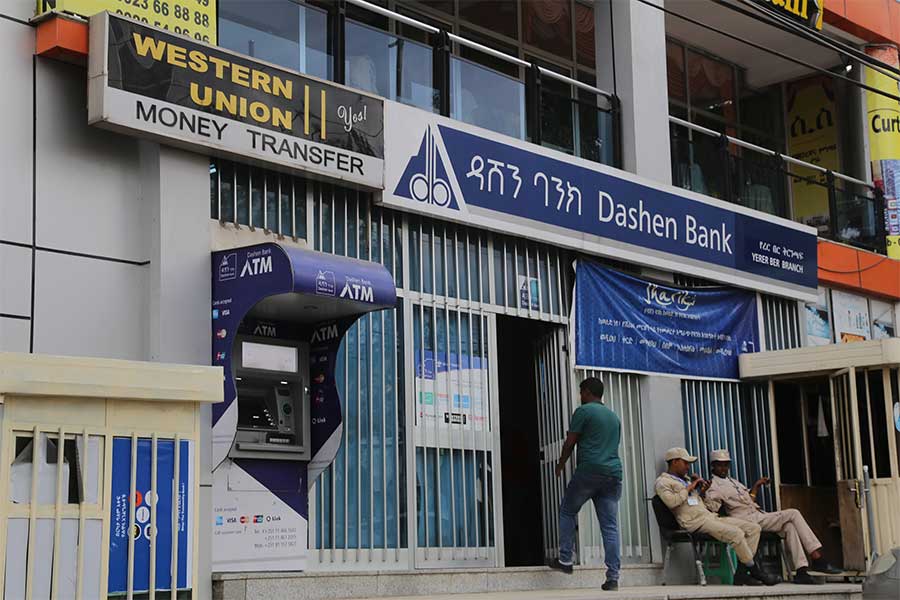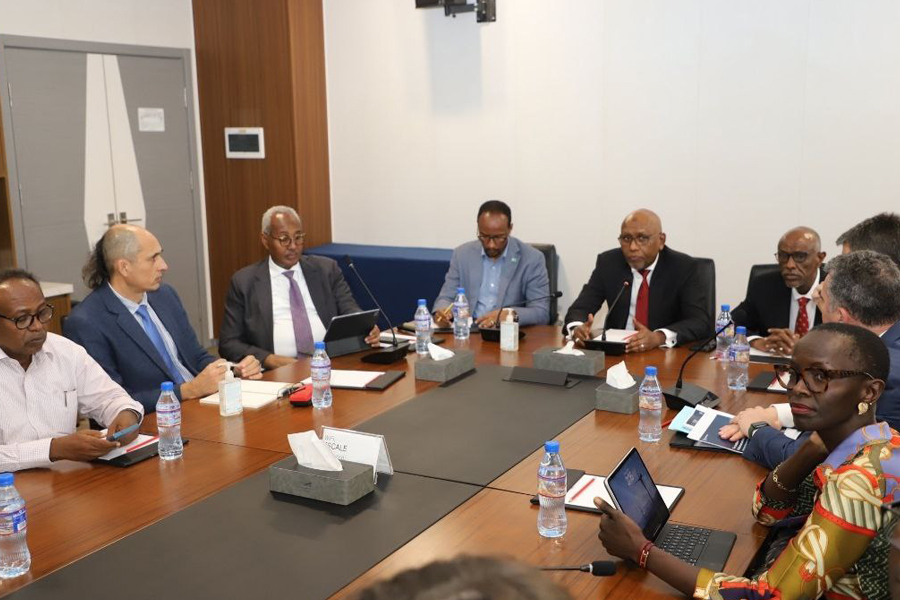
Radar | Mar 06,2021
Sep 10 , 2021
By Christian Tesfaye
Europe has a big problem. The people of Afghanistan may be suffering from war, dislocation and poverty. Still, it can be an even bigger disaster if they try to escape this tragedy in the eyes of the Europeans. The European Commission may be big on human rights and democracy, but it is not keen to allow people escaping torture and intolerance through its borders. The Afghanistan disaster is a major test of whether the EU is prepared to put its money where its mouth is and act humanely.
“We have a history and a tradition that we celebrate when walls are brought down and bridges are built,” once said Federica Mogherini, former EU foreign policy chief, in response to former President Trump’s border wall.
Faced with a possible half a million Afghans flooding into Europe, now President Emmanuel Macron wants the sub-continent to do everything in its power to stop vulnerable people escaping devastation from coming anywhere near them. As a result, Europe is in a wall building binge. Some years ago, there was major criticism when Hungary did the same, but since it had an illiberal government, the move was heavily criticised by the liberal media. There is hardly a peep now that Spain, Norway, and France are putting up their own fences.
It is obvious and even understandable why. Illiberalism is not merely an African, Middle Eastern, Russian and Chinese thing. A wave of refugees into Europe would create a great deal of cultural and racial insecurity. It is also true that first-generation migrants fleeing conflict are not likely to be as productive as their offspring could be, who will not have the training, education and certification to compete in anything other than low paying jobs, further dampening wages. The upper-middle-class and the rich would not care; in fact, an influx of cheap labour into the economy would be good for business.
But the working classes will not be on board. Populism will rise and many of those currently in power would be replaced by right-wing parties and candidates. It will also be bad for the world. As hypocritical as Europe may be now, few would want a return to illiberalism, or worse, fascism.
Between a rock and a hard place, what can Europe do?
It could take the development of the Global South, especially the Middle East and Sub-Saharan Africa, as seriously as that of its own. Most people would rather live in their own countries given that there are not constant conflicts and economic opportunities are available. And it should be clear by now that the two are closely intertwined.
It is not a coincidence that Sub-Saharan Africa, the lowest income region of the world, also has the most considerable incidence of conflicts and wars. The population of these countries is exploding but their productivity is falling. Every year that goes by when investment in this productivity is not realised, the more the youth will turn to AK-47s to guarantee their economic welfare, the more migrants that will be knocking on Europe’s door and the likelier the West will eventually fall back into illiberalism. We are all in this together.
Europe might have been facing a far more significant problem had much of Asia not found its way out of the muck of extreme poverty. The case of East Asia is especially a remarkable example of either the quality of migrants the West has been getting from these countries or the reverse migration that is happening.
“If I were Korean, I might have gone back in the 1980s, if I were Chinese I might have gone back in 2000,” said a Vietnamese diaspora whose parents left for the United States looking for economic opportunities in the 1970s, talking to The Economist.
He returned back to Vietnam with his family nearly three decades later. There were no walls needed for this, just a developing Vietnam with promises of economic welfare for its citizens. This is what Afghanistan needs, as does Sub-Saharan Africa.
PUBLISHED ON
Sep 10,2021 [ VOL
22 , NO
1115]


Radar | Mar 06,2021

Viewpoints | May 01,2020

Fortune News | Jul 17,2022

Commentaries | May 06,2023

Agenda | Feb 01,2020

Viewpoints | May 01,2020

Commentaries | May 29,2021

Commentaries | Mar 20,2021

Fortune News | Jun 22,2024

View From Arada | Jul 31,2021

My Opinion | 131970 Views | Aug 14,2021

My Opinion | 128359 Views | Aug 21,2021

My Opinion | 126297 Views | Sep 10,2021

My Opinion | 123912 Views | Aug 07,2021

Dec 22 , 2024 . By TIZITA SHEWAFERAW
Charged with transforming colossal state-owned enterprises into modern and competitiv...

Aug 18 , 2024 . By AKSAH ITALO
Although predictable Yonas Zerihun's job in the ride-hailing service is not immune to...

Jul 28 , 2024 . By TIZITA SHEWAFERAW
Unhabitual, perhaps too many, Samuel Gebreyohannes, 38, used to occasionally enjoy a couple of beers at breakfast. However, he recently swit...

Jul 13 , 2024 . By AKSAH ITALO
Investors who rely on tractors, trucks, and field vehicles for commuting, transporting commodities, and f...

Jul 5 , 2025
Six years ago, Ethiopia was the darling of international liberal commentators. A year...

Jun 28 , 2025
Meseret Damtie, the assertive auditor general, has never been shy about naming names...

Jun 21 , 2025
A well-worn adage says, “Budget is not destiny, but it is direction.” Examining t...

Jun 14 , 2025
Yet again, the Horn of Africa is bracing for trouble. A region already frayed by wars...

Jul 6 , 2025 . By BEZAWIT HULUAGER
The federal legislature gave Prime Minister Abiy Ahmed (PhD) what he wanted: a 1.9 tr...

Jul 6 , 2025 . By YITBAREK GETACHEW
In a city rising skyward at breakneck speed, a reckoning has arrived. Authorities in...

Jul 6 , 2025 . By NAHOM AYELE
A landmark directive from the Ministry of Finance signals a paradigm shift in the cou...

Jul 6 , 2025 . By NAHOM AYELE
Awash Bank has announced plans to establish a dedicated investment banking subsidiary...